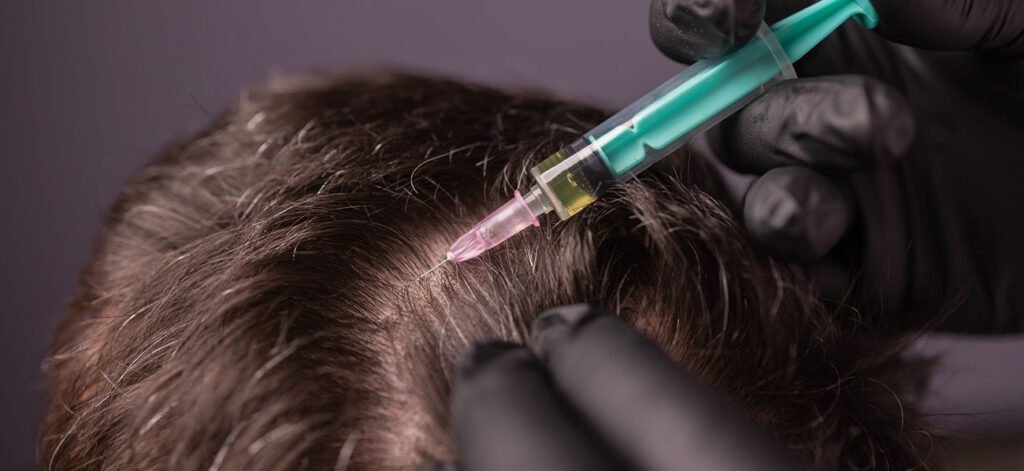Exosome therapy is gaining worldwide attention for its potential in anti-aging, regenerative medicine, and various therapeutic applications. As South Korea becomes a top destination for medical tourists seeking this cutting-edge treatment, understanding the legal and regulatory landscape surrounding exosome therapy is crucial for safety and peace of mind.
This article provides an in-depth overview of the legal status, regulatory framework, and important considerations medical tourists should know before undergoing exosome therapy in Korea.
1. Legal Status of Exosome Therapy in Korea
- Exosome therapy is legal and permitted within the boundaries of South Korea’s medical and pharmaceutical laws.
- The treatment is classified under regenerative medicine and advanced biotechnologies, which are subject to specific regulations to ensure safety and efficacy.
- Korean medical institutions and biotech companies can develop and offer exosome-based products provided they comply with national standards and receive the necessary approvals.
- However, only licensed medical practitioners and authorized facilities are legally allowed to administer exosome therapies.
2. Regulatory Authorities Governing Exosome Therapy
- The Ministry of Food and Drug Safety (MFDS) is the main regulatory body overseeing the safety, quality, and approval of exosome products used in clinical settings.
- The Ministry of Health and Welfare (MOHW) regulates clinical practice standards, hospital licensing, and medical professional qualifications.
- Additionally, Korea’s Advanced Regenerative Medicine and Biopharmaceutical Act provides a legal framework for the safe use and development of regenerative therapies, including exosomes.
- Clinics offering exosome treatments must operate under these laws and adhere to strict clinical trial and safety reporting requirements.
3. Quality Control and Manufacturing Regulations
- Exosome products in Korea must be manufactured in GMP-certified (Good Manufacturing Practice) facilities to ensure consistent purity, potency, and safety.
- Batch testing for contaminants, particle size, and biological activity is mandatory before clinical use.
- The MFDS requires companies to submit detailed dossiers proving the safety and quality of exosome formulations.
- This rigorous oversight protects patients from unverified or substandard products.
4. Medical Licensing and Practitioner Qualifications
- Only board-certified doctors, typically dermatologists, plastic surgeons, or regenerative medicine specialists, are authorized to perform exosome therapy.
- Medical practitioners must have completed training and certification specific to advanced regenerative treatments.
- Clinics must maintain licenses and follow protocols that ensure patient safety, informed consent, and proper medical record-keeping.
5. Clinical Trial and Evidence-Based Practice
- Many Korean clinics participate in or rely on results from clinical trials and peer-reviewed studies to validate their exosome therapy protocols.
- The government encourages evidence-based approaches and continuous monitoring of treatment outcomes.
- Patients can request information about clinical data supporting the specific exosome products and techniques used by the clinic.
6. What Medical Tourists Need to Know Before Treatment
Verify Clinic Credentials
- Confirm that the clinic is licensed and accredited by Korean health authorities.
- Ensure that the exosome products used are approved or certified by the MFDS.
- Check practitioner qualifications and experience specifically related to exosome therapy.
Understand Treatment Risks and Benefits
- Although generally safe, exosome therapy may have risks, including allergic reactions or infection if not properly administered.
- Clinics must provide detailed informed consent forms explaining potential risks and expected results.
Avoid Unlicensed or Unregulated Providers
- Beware of clinics or providers offering exosome therapy without clear licensing or certification.
- Unregulated treatments may use low-quality or unproven exosome products, posing health risks.
Legal Protections and Patient Rights
- Korean medical law protects patient rights, including the right to receive clear information, privacy, and recourse in case of malpractice.
- International patients can seek assistance from medical tourism support organizations if issues arise.
7. Regulatory Updates and Future Outlook
- South Korea continues to update regulations as exosome science advances, balancing innovation with patient safety.
- The government promotes international collaboration and harmonization with global standards to enhance treatment accessibility.
- Medical tourists are encouraged to stay informed about regulatory changes that might affect their treatment options.
✅ Summary Checklist for Medical Tourists on Exosome Therapy Legality and Safety in Korea
| What to Check | Why It Matters |
|---|---|
| Clinic licensing and accreditation | Ensures legal operation and safety compliance |
| Practitioner board certification | Confirms expertise and proper training |
| MFDS approval for exosome products | Guarantees product quality and regulatory oversight |
| Transparent informed consent | Understand risks, benefits, and procedure details |
| Clinical trial data availability | Evidence-based treatment reassures effectiveness |
| Avoid unregulated providers | Protects from unsafe or fraudulent treatments |
Final Thoughts
Exosome therapy in Korea operates under a well-established legal and regulatory framework designed to ensure patient safety and treatment efficacy. Medical tourists seeking this advanced anti-aging treatment can trust Korean clinics, provided they do due diligence to select reputable, licensed providers who follow all regulatory requirements.
If you want, I can assist you with finding licensed Korean clinics, verifying regulatory compliance, or guidance on safe medical tourism practices related to exosome therapy. Just let me know!




